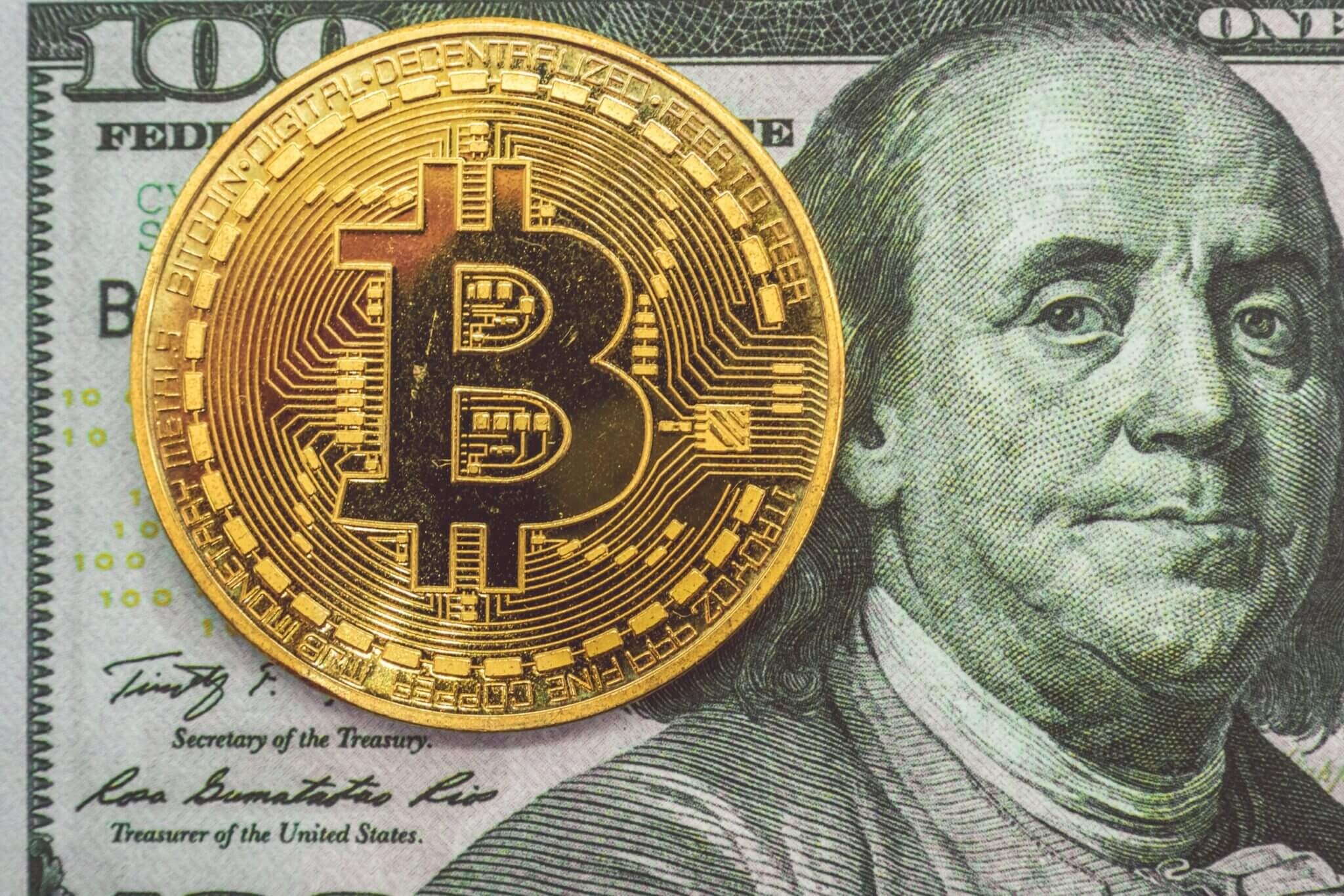What do we need for crypto to really hit the big time?
What does it take for crypto to turn into something nobody can live without, something invisible and universal that everyone just uses and nobody even thinks about anymore?
All technological revolutions follow the same patterns. Over time, we go from a few smart phones in everyone’s pocket to half the world owning one. We go from a couple of geeks on the early Internet playing Doom to everyone connected to it 24 hours a day.
But how do we make that massive leap? How do we jump the chasm from early adopters to late majority?
Every technology starts off small and misunderstood and grows over time. It goes through iterations and setbacks. It overcomes those setbacks and flows from early prototypes to highly refined and polished products. It starts as a revolution and then evolves over time into the primary way most people do things.
But more than anything there are two keys that take a promising technology and rocket it into the mainstream over a long enough timeline.
Going Gently into that Good Night
The first is Planck’s principle:
“A new scientific truth does not triumph by convincing its opponents and making them see the light, but rather because its opponents eventually die and a new generation grows up that is familiar with it.”
Also, less elegantly put as:
“Science progresses one funeral at a time.”
And no, I’m not talking about a bloody, armed revolution. I’m talking about the current generation retiring.
That’s the way progress really happens. Eventually the older generation, which benefits from keeping things the way they’ve always been, dies off or retires and they get replaced by a younger generation who understands it.
It’s not just scientific truth. It’s true for all policy, all tech revolutions and all political movements.
When I was a kid spending my lawn mowing money on comic books from Marvel, I used to dream that one day I’d see them on the big screen. But then I’d think, no way. They won’t do it. They don’t care about kids and they never will. And that was absolutely true. The older generation didn’t understand comics and thought they were the work of the devil corrupting young minds. The comic movies that did get made by the older generation were horrible, cartoony messes, not the hardcore, gritty, deeply personal comics of the 80s that I wanted to see.
Fast forward 30 years and the Marvel franchise is one of the most successful of all time having raked in over 22 billion dollars and that’s just the movies. It’s not even counting toys and merchandise which are untold billions more. No other franchise has managed to dominate so consistently over 20 years with a series of deeply loved, well reviewed, highly intricate and interlocking stories, not even Star Wars.
So what changed?
My generation grew up and that’s what we wanted to see. Gen X moved into power in the film and TV industry and they turned to the stories they knew from their childhood. Simple as that.
We will never win by convincing old, greying dinosaurs that crypto is not a threat to their way of life because it is a threat to their way of life. We won’t win the argument with logic and lots of facts. You can’t get the winners of the old system to bet against that system because their salaries depend on the old system and they want to keep new potential winners out at all costs.
And, of course, very few people ever change their mind anyway. We like to think that we think but mostly people don’t think at all. We use quick confirmation bias and short, energy efficient heuristics and logical fallacies to make nearly all of our decisions. It’s the rare person who’s actually open to changing their mind because we’re not taught how to think, we’re taught what to think by our teachers, parents, nations and cultures.
Warren’s weak environment argument lumps every coin into the same bucket and proves she has no desire to understand the technology
Engaging with detractors only works if someone is making an intellectually honest argument and is actually interested in changing their mind. That’s not true for 80% of the population. Most people have absolutely no desire to change their mind and they aren’t making a real argument, they’re just looking for a way to justify an attack they already believe in.
Take the environmental argument against Bitcoin, aka “we have to crack down on crypto because it’s environmentally damaging,” from Senator Warren and others. Crypto believers try to respond with any of the following three responses:
- No it’s not
- Yes Bitcoin does have an environmental impact but it serves an important purpose so that okay
- Bitcoin is not all of crypto and there are other consensus systems which are more energy efficient
The inherent flaw in every one of these is that you imagine Senator Warren or anyone else making that argument cares. They don’t. Warren’s argument is just a smokescreen, the thinnest possible justification for something she already hates and wants to destroy. She made those comments from her position of power in the banking committee that’s the vanguard of the old guard.
Really all that most people in power are doing is looking for an excuse to attack and a way to protect the status quo. They’re not making a real, honest argument, they’re looking for a line of attack that fits with their tribe’s thinking because all these people represent a tribe of collectivist thought. Senator Warren knows her tribe care about the environment so that’s her line of attack.
If she was making a real argument, the environmental argument would look utterly foolish with even the smallest amount of critical thinking. That’s because “real” money, aka fiat money, both in electronic and physical form is infinitely more resource intensive.
Just think about all that metal they have to dig out of the ground and smelt down and mint and physically transport around the world. Think of all the trucks and boats hauling that physical money across the ocean and over vast highways. Think of the backbreaking labor at every step and all the electricity and oil burned. Think of millions upon millions of distribution points for that money. Think of all the middle men along the way who’s salaries come from checking those transactions at countless choke-points.
And it’s not just physical cash. It’s the same with electronic transactions.
People try to compare Visa and Mastercard’s electricity usage as a one to one comparison with Bitcoin’s proof of work energy usage. That’s absurd. It’s not just the electricity they use on every transaction. It’s every employee who works there, every office and the endless rows of nasty fluorescent lights overhead scorching out the eyes of all those workers in their little cubicle farms. It’s every fraud investigation that takes forever and costs billions every year, every regulatory approval, every piece of paper printed for compliance, every data center running billions of point of sale terminals around the world and the cost of running all those call centers in India and the Philippines to deal with complaints.
Senator Warren’s argument for fiat would be the same as yours for crypto. Yes it all burns energy and damages the environment, but it’s also essential and necessary.
And yet Senator Warren and countless others make the environmental argument about Bitcoin with a straight face, believing one is an energy waste and the other is for the greater good. It always amazes me how masterfully people hold two totally opposite beliefs in their head at exactly the same time with no conflict whatsoever. The human race is sixth degree black belt level at double plus good doublethink.
It’s all about protecting the tribe. A different tribal leader would make a different argument. Former president Trump knows his tribe are America first nationalists so he makes the argument that Bitcoin shouldn’t compete with the all mighty US dollar. “Bitcoin, it just seems like a scam,” Mr Trump said. “I don’t like it because it’s another currency competing against the dollar.” That’s enough for many of his people to dismiss it without further thought.
It’s the rare person who has an independent mind capable of looking at everything on its own merits and who can think outside of these simplistic tribal group think patterns. If you’re one of them, then your mistake is thinking other people fall into the same category because they don’t. You might as well be arguing with a non-player character in a video game.
The truth is, all money is the same at its core, whether that’s gold, Bitcoin, or the US dollar:
- It’s only valuable because we believe it is and it’s backed by nothing but our faith (and violence, in the case of fiat currencies)
- It’s a massive energy suck that serves the purpose of keeping the wheels of commerce turning
But that doesn’t matter because you won’t convince the old guard with that or any other argument.
Convincing all these people one by one is a losing game.
It’s like in the early days of the Internet when I had to explain over and over why I was going to the work in the dot com space. I told them the technology was super groundbreaking and would change the world in ways we couldn’t possibly understand yet. Back then there was no Spotify or Uber or Instagram or Facebook so they didn’t get it. They couldn’t see what I saw. They just saw a slow, boring information retrieval engine and they thought I was wasting my life and nothing I said could change their mind.
What changed everyone’s mind eventually?
Was it a carefully reasoned argument on my part? Did I dazzle them with my foresight and convince them with a brilliant turn of logic?
No. In short, the Internet won.
What happened is what always happens. The old guard stepped down and the Internet evolved and advanced. The websites got better and more useful. The smartphone revolution fired up and apps took off. And suddenly people didn’t need to understand the Internet to use AirBnB and Spotify. It just worked.
And that takes me to the second thing we need to happen for crypto to truly go mainstream.
Apps.
Give Me the Crypto Spotify Now
It’s not enough for the older generation to retire and go gently into that good night. We need real working apps for anyone to care about crypto.
Right now we still have a bunch of people in crypto out there selling the equivalent of TCP/IP and DNS.
Want to buy some DNS and TCP/IP?
No, no I don’t.
The average person doesn’t know or want to know about TCP/IP and how a URL translates into an IP address and how transport layers security works and they don’t care about blockchain and they shouldn’t need to know about it to use it.
What they want is to take pictures of their food and put it on Instagram. They want dance to their favorite songs with their friends, put a filter on it and post it on TikTok. They want to rent a house that’s better than a hotel on AirBnB. They want to stream the entire library of music. The want to chat with their friends on Telegram and WhatsApp.
When crypto has real apps and real use cases, that’s the very moment when it goes hyper mainstream.
Why?
Because behind all those apps are money. Some of those apps are charging you for their service like Spotify and AirBnB. The others are vying for your attention and selling you stuff with ads.
All of that boils down to economic power.
And if you want to deal with the people in power now, you need leverage.
Leverage comes from one thing, economic power.
Power negotiates with power.
Power does not negotiate with nobodies and people with no leverage. They don’t care that you think the technology is cool and will change the world and that you want more financial freedom and that the old system leaves billions of people out in the cold who don’t even have a bank account.
None of that means a thing to them because they have a bank account and anyone who doesn’t is meaningless to them, nothing but a cold statistic in the undifferentiated blob of irrelevant and useless people.
But when you have crypto apps that are super easy to use and everyone is downloading them without caring that they run on Ethereum or Solana then you’ve got something. Those new users won’t care what kind of technology powers it and whole new industries will spring up around it. When you have companies dedicated to serving those users and people with livelihoods that count on those technologies then you are getting somewhere. Crypto needs real apps that have regular people making their living from it. Think AirBnB or Uber or Spotify for crypto or whatever new fangled apps we can dream up.
And then you have power to negotiate with power.
When people are making a living on it, then the government has to take them seriously. It’s all about leverage. Without leverage in a negotiation you have nothing. If one side has all the leverage and you have to beg for your rights, you’ve already lost.
When the local government gets whipped into a frenzy that AirBnB is destroying the local rental market they can’t just pass a law to destroy AirBnB. The many tens of thousands of property owners and companies that make a living with their property on AirBnB now show up to those government meetings and make their voice heard. When Washington wants to pass a law, they show up with lobbyists to make sure all those owners have a say in that law. They can’t just steam roll over all those people and destroy all those livelihoods.
And if you’re thinking we already have apps in crypto, like DeFi, no we don’t.
An app is not “swapping one made up money for another made up money.” DeFi is a protocol, just like HTTPS. It’s something to build DeFi apps on top of and those are still really early stage. DeFi will turn into a real app when regular people are using it to buy houses and pay off school loans and start businesses. Until then it’s just a way to change one money for another money.
And an app is also not “I can do what I want with my money and the government can’t tell me what to do.” That’s a political stance.
If we don’t have this we don’t have anything. Speculation is not an app. The government doesn’t care if your investment goes to zero. They don’t care if you need your investment to set you free from the system. They don’t want you free from the system because they are the system. To them you’re a cog in a machine and they want you in it, not out of it.
During lockdowns, who had exceptions all over Germany?
Big offices.
People couldn’t go to clubs and have fun and get together in big groups to drink glow wine at Christmas, but they could go to an office, even though an office was one of the dumbest places you could go.
What a brilliant idea to go spend 8 to 10 hours trapped in a small space with a bunch of people you barely know!
What could possible go wrong?
Going to the office probably spread more COVID than a dozen small glow wine drinking fests with close friends.
Why did they allow it?
Because to the government making sure you keep the hamster wheel spinning is their top priority.
So when your investment goes down because they rug pulled you with some draconian new regulation they don’t care. It just fuels their narrative that it was all a dangerous gamble anyway that you shouldn’t be allowed to make in the first place. Crypto profits mean nothing to them. They’re a drop in the bucket, a bit more in tax revenue and that’s about it.
When the market crashed in 2008, Ray Dalio found that he was shouting into the wind that the financial market was about to crash. He met with regulator after regulator and they didn’t even have the financial system as an actual variable in their models. They just had this vague thing they called “the market” and they couldn’t even conceive of the financial system as a series of businesses that could crash or go bankrupt.
If they didn’t even have the actual banking system on their radar in 2008, how much do you think they care about the crypto ecosystem which is a banana republic by comparison?
When there are real economies of scale running on top of crypto then we have leverage and only when that happens.
We’re not David against Goliath.
We’re a tiny village fighting with sticks against the Roman legion at its pinnacle of might and power.
We Want the World and We Want it Now
If this boom to bust market cycle of 2020–2021 has taught us anything it’s that we got too far ahead of ourselves.
We thought DeFi itself was an app and that institutions were bought in and we were at a real turning point. Traders were starting to believe that Ethereum had really decoupled from Bitcoin as it doubled over 4 months, while Bitcoin thrashed.
Then Bitcoin crashed and dragged everything else to hell with it. Ethereum lost all that value in a few days.
Why?
Because the crypto market is one of the most highly correlated markets in history. There’s not a single coin in all of crypto that’s decoupled and there won’t be for some time. We’re all betting on the future but the future isn’t here yet. We’re speculating, whether we like that word or not.
I love that word. Speculation. Regulators say it with a sneer but to me it’s beautiful.
Speculators are pioneers.
Without speculation we wouldn’t have a modern civilization. We’re Delta Force and Seal Team Six all rolled into one.
We’re the first ones in when nobody else believes. We set the pace for the people who come after who all want a sure thing and a boring 5% return every year. We bet on the future.
Without speculators and risk takers and people who took a chance on something that might fail we wouldn’t have an economy. Everyone looks like a genius after something goes mainstream but before that the speculators had to endure a lot of disbelief and hatred and doubt to finance and build something everyone takes for granted now.
This isn’t a highly mature market where all the things we bet on have real businesses that will continue to flourish after a crash. It’s all still smoke and mirrors or betting on “scarcity.” I’m sorry to say that it’s the same old song and dance. It’s the same market it was in the crash of 2018. It’s no different because we’re still in building and adoption mode. There are no apps regular people can’t live without and we’re still just swapping money around and the same people are still in power who hate crypto.
Crypto will change the world, just not as fast as we imagine it. It will take patience and time. It will change as the older generation sets out to pasture. It will change when the protocols are fully baked and lighting fast and we don’t need to care whether an app uses Bitcoin or Ethereum or Solana or anything else.
We’ll just use it.
We’ll point our smart phone at a QR code and pay instantly, and send money to our friends over encrypted messenger, and buy concert tickets and take out loans to buy a house from a platform instead of a bank.
And when that happens investing in crypto will be boring. It will move slowly, not swing wildly. It will be highly regulated with people in boring blue suits managing it with lots of rules. Analysts from the big firms will write about it in stale, hard to read reports that don’t threaten anyone.
It won’t be a revolution anymore.
Crypto will be the establishment.
And then somewhere, someone much younger, who’s left out of the system will dream of bringing it all crashing down, and they’ll come up with an idea and a brand new technology that scares the hell out of us and threatens to topple everything we worked so hard to build with crypto.
We’ll be the ones trying to suppress the revolution.
The wheel of time spins forever and ever.
And the eternal cycle will roll back to the beginning once more.
###########################################
I’m an author, engineer, pro-blogger, podcaster, public speaker. My upcoming book, Mastering Depression and Living the Life You Were Meant to Livetells the story of how I battled the dark forces of existence and still found a way to live a big, bold and beautiful life.





























